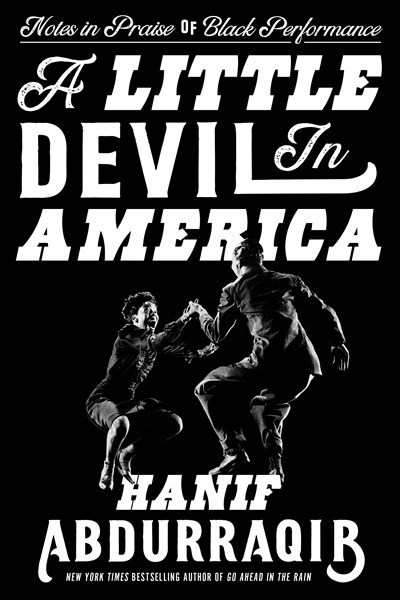Both of Hanif Abdurraqib’s earlier books—They Can’t Kill Us Until They Kill Us and Go Ahead in the Rain: Notes to a Tribe Called Quest—skillfully weave memoir and cultural criticism. He’s known for unraveling our ideas about music, history and culture and then using threads of commentary and insight to stitch a totally original pattern.
With the same ingenuity, Abdurraqib traces the depth and diversity of Black modes of performance in his brilliant A Little Devil in America: Notes in Praise of Black Performance. Opening with an examination of Black dancers who participated in the dance marathons of the early 20th century, Abdurraqib dispenses prose in motions that shuffle forward, step sideways, leap diagonally and waltz gracefully through five sections exploring different facets of Black performance in America.
Performance can be liberating, like when dance marathons give partners “a powerful enough relationship with freedom that you understand its limitations.” It can also provide an opportunity to show off, as in the dance line on “Soul Train.” Performance can demonstrate self-awareness, too—a chance to define yourself by how your body moves when you’re throwing down in a beef, which Abdurraqib vividly illustrates as a kind of performance. He traces the rich history of performance through sketches of Black magicians, dancers and musicians, including Whitney Houston, Michael Jackson, Josephine Baker, Aretha Franklin and Merry Clayton, who’s most famous for her performance on the Rolling Stones’ track “Gimme Shelter.” Clayton’s chapter may be the best in the book, if only because it gives her the recognition she deserves for her ethereal voice.
A vibrant showcase of sharp writing, Abdurraqib’s A Little Devil in America attests that Black performance at its root is not simply an outward show of talent but also a means of survival. Read carefully. Abdurraqib’s book is a challenge not to accept the usual explanations for the performances we witness.




